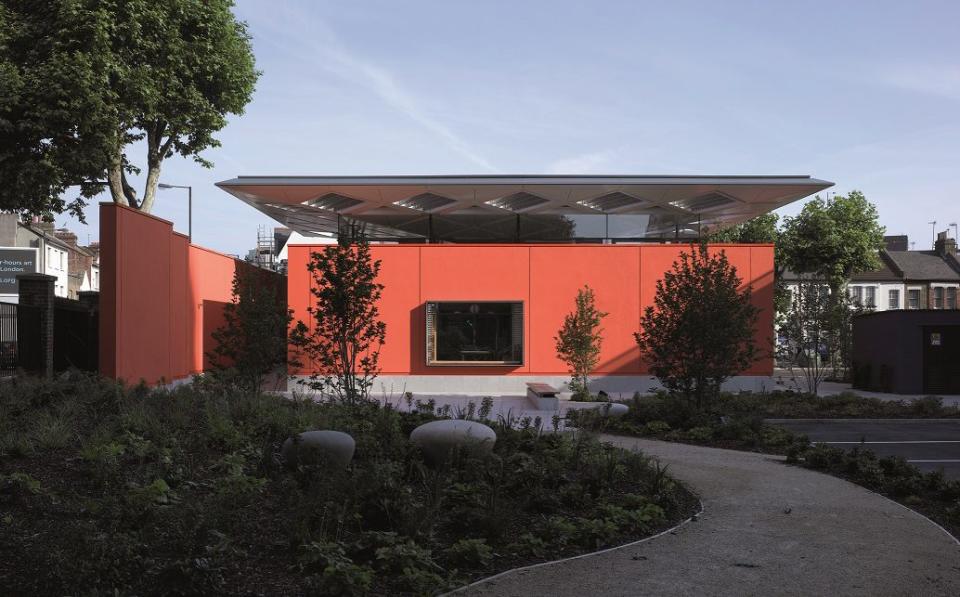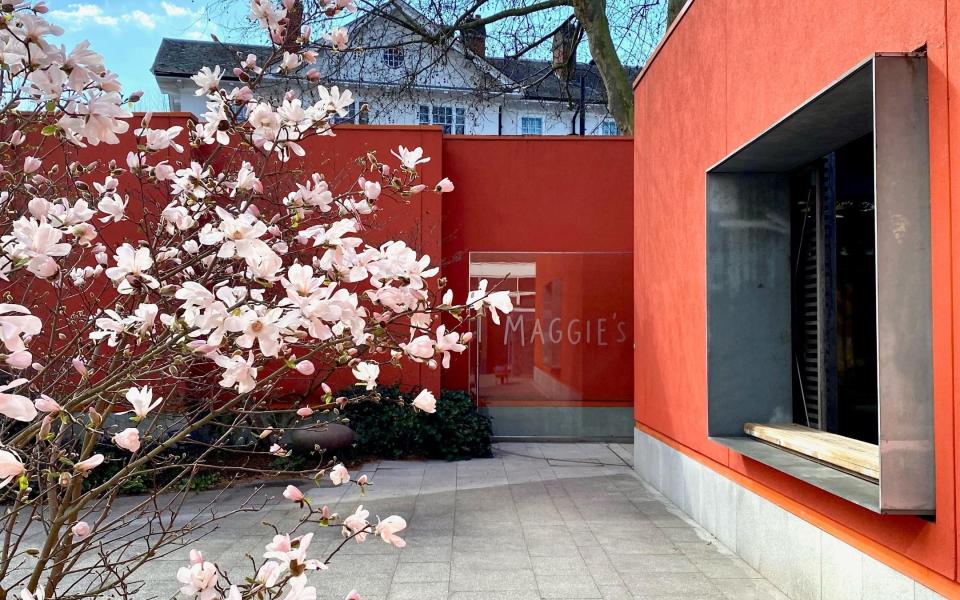Rory Bremner: ‘When my dad’s cancer spread to his jaw, they took the side of his face away’

For a moment it sounds like Boris Johnson on the other end of the phone. That familiar voice is telling me that, because he is keeping Covid rules to the letter by self-isolating, he won’t after all be able to make our interview scheduled for today.
It takes a few seconds for the penny to drop. It is Rory Bremner, impressionist extraordinaire, rather than the Prime Minister who is calling me. Just back from Italy, Bremner has been caught out by the rapidly-changing Covid restrictions and told to isolate until his PCR test result comes through.
He had volunteered to show me round the cancer centre next to London’s Charing Cross Hospital run by Maggie’s, one of the Telegraph’s Christmas charities. Now it will have to be a virtual tour.
Bremner’s involvement began around six years ago, he explains from his Cotswolds home, when he was invited to appear at a fundraising lunch Maggie’s was organising. He agreed, and liked what he heard so much that afterwards he asked to see one of their centres – the same one at Charing Cross where we had been planning to meet.
But the roots of his relationship with the charity go back over 40 years, long before it came into existence. That was when Bremner was still at school doing his A-levels and his father, Donald, was undergoing cancer treatment.
The family – he had an older brother, Nigel, and a sister from his father’s first marriage, Boo – were living in Edinburgh, so the treatment for Donald’s stomach cancer, which had also spread to his jaw, happened in the city’s Western General Hospital. “That is the same hospital where, over 20 years later, Maggie Keswick Jencks, the founder of Maggie’s, was told that her breast cancer had returned.”
Sitting in a windowless corridor there with her husband, trying to process the news, she knew that there had to be a better way of supporting those in similar situations. It was the birth of Maggie’s centres.
The plans for the very first one were on Keswick Jencks’ bedside table at the time of her death in 1995. The following year, it opened in the city.
Though Covid rules have prevented us being side-by-side to look round the Charing Cross Maggie’s, one of the 24 that have been opened since, Bremner uses his formidable skills with words and voices to guide me through a virtual tour.
“Like all Maggie’s, it is next to the main hospital. You walk in and there is the most extraordinary welcoming, supportive and calm atmosphere. Maggie’s centres are the very opposite of the frightening and austere places that hospitals can be. I’ve never been to a support centre that is anything like it,” he says.

And that initial impact is so very important, he emphasises. “I am sure we can all appreciate that there are many hard things about cancer, but one of the hardest thing is looking for help. The first thing I say to any of my friends who tells me they have cancer is: ‘Contact Maggie’s – get through the door.’ Because that can be the toughest thing.”
Once you are inside, he continues, everything is bright and light. There is even a beautiful garden outside.
“People at all different stages of their cancer treatment are dropping in. They may just be having a cup of tea round the kitchen table with someone to talk to. Or have received a diagnosis and don’t know where to turn. Or are worrying that their family has been turned upside down – like mine was.”
Does it make him wish that there had been a Maggie’s centre when his father was diagnosed? “Of course. Cancer can be hard to talk about, even to people close to you. It upsets that relationship. But at Maggie’s they absolutely and intuitively get it – what it is to have cancer, to manage it, and to support someone through the process and their family.”
The treatment for Donald Bremner’s cancer was radical surgery. “They took the side of his face away,” his son remembers. “That was quite a thing for him. They took the skin from his thigh and put it on his face.”
Bremner’s relationship with his dad was not a particularly close one, he reported when he appeared on the BBC genealogy show, Who Do You Think You Are? back in 2009.
Subsequent visits were at Bangour, a now-closed hospital outside Edinburgh on what had once been an army base. It was still at the time using old military huts as clinical facilities. “I’d go and see him there. His face was swathed in bandages.”
The whole experience was, he reflects, “worlds apart” from what now goes on in Maggie’s centres. And, he adds as an aside, in how cancer charities operate.

For the last 22 years of his life, his father – who as a major had served with distinction in the Second World War, meeting Bremner’s mother, Ann, in occupied Germany where both were working soon after the Allied victory – was the appeals secretary for the British Empire Cancer Campaign, which later became the Cancer Research Campaign.
“I sometimes find myself thinking of the irony of him giving all those talks about cancer and then getting it himself. And then when he did, they sacked him. But that was a long time ago. In those days he lost his job because they couldn’t keep it open for him during his treatment. That wouldn’t happen now. The whole culture has changed,” says Bremner.
For him, Maggie’s symbolises that change. Its centres from Aberdeen to Southampton (there is also one in Hong Kong) are all strikingly individual designs, often by well-known architects. Zaha Hadid did the one in Kirkcaldy, Norman Foster in Manchester and Thomas Heatherwick in Leeds.
“They haven’t just rolled out a model,” enthuses Bremner, resuming his role as virtual tour guide. “Each is a building, but it is also a space that is as individual and special as possible, not in a flamboyant way, but so as to make the whole experience about the individual who has walked in through those doors as a dramatic moment in their life.”

The overall effect, he suggests, mirrors the human reaction, when someone shares their bad news with you, of putting your arms around them. “You do it because you want to offer support. At Maggie’s, the architects offer support by putting a building round them. They are like a spa for the mind. They can’t cure the body, but they can support the mind and the emotions.”
After that first event for Maggie’s six years ago, Bremner has been happy to use that instant public recognition (that first came his way in the late 1980s on his eponymous Channel 4 series, and has built since via Spitting Image, Bremner, Bird and Fortune, an appearance on Strictly… and a stint as a team captain on Mock the Week) to do all he can to help the charity continue to expand its work.
That task is even more urgent now because of the Covid crisis, he says. “Maggie’s is already supporting around 250,000 people each year, but what we know [from a recent National Audit Office report] is that as many as 740,000 cancer cases that needed an urgent referral by GPs may have been missed. That’s a staggering number.”
And one he insists – in his own voice, since this is a cause that is close to his heart – that means Maggie’s is going to need every penny it can raise in the months and years ahead. “Because there are going to be even more bewildered, lost and anxious people coming through the doors of Maggie’s centres.”
Maggie’s is one of four charities supported by this year’s Telegraph Christmas Charity Appeal. The others are Alzheimer’s Society, Dogs Trust and The Duke of Edinburgh’s Award. To donate, visit telegraph.co.uk/2021appeal or call 0151 284 1927


